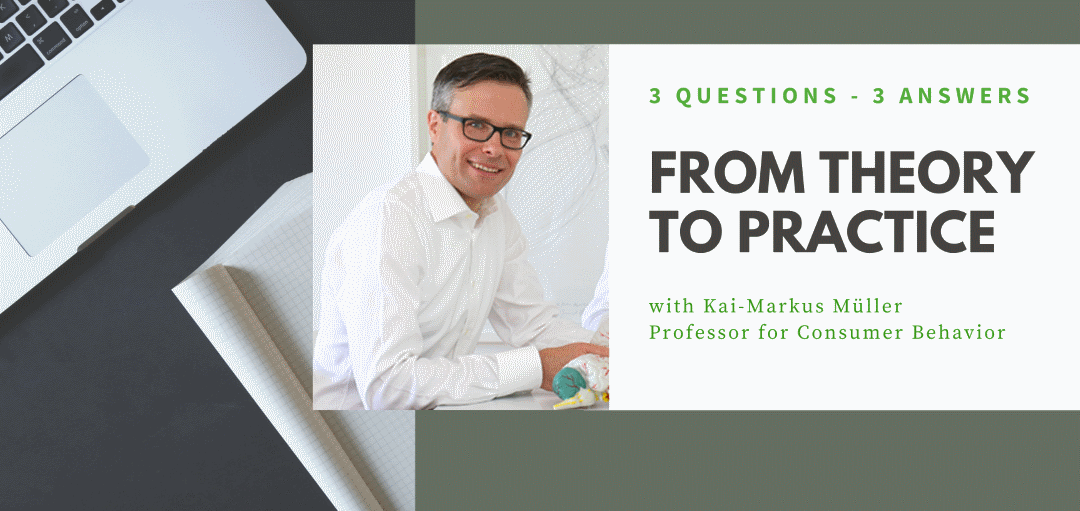With our new series, professors of the HFU Business School give tips on current topics from the world of business „From theory to practice“.
Today we would like to start our new series with 3 questions to our HFU Business School Professor for Consumer Behavior, Prof. Kai-Markus Müller,
on his opinion regarding successful advertising campaigns in today’s world.
1) Prof. Müller, COVID-19 has massively influenced all of our consumer behavior. What can companies currently do to position themselves successfully in the market and still generate sales?
Prof. Dr. Kai-Markus Müller: Sadly, for the offline retail world that had developed last century with interesting stores and personal shopping advise the situation post COVID-19 will not be positive. To say it a bit more bluntly – even the last supporters of the shops on High Street have learned how convenient online shopping can be. On top, platforms such as Amazon, Check24, or idealo eat into profits. Looking at brands – the situation does not look as bad. Various interesting business models are springing up: direct-to-consumer online approaches, pop-up-stores, outlets, etc. These novel business models have been implemented in a variety of cases with great success.
2) How do brands manage to remain attractive today? Which sales channels help and what role do social media channels play?
Prof. Dr. Kai-Markus Müller: Social media plays a major role in branding and marketing today. For instance, some brands have created large Facebook groups where users actively and daily exchange information. To give you two successful examples from German mid-size enterprises with strong brands: (1) Cooking pot manufacturer Fissler has a facebook site with a lot of regularly updated tips revolving around the theme of cooking. This site has around 45,000 followers. (2) Professional power tool manufacturer metabo has a “Fanclub Germany” where professional users discuss usability and applications of the various power tool solutions. This site has around 1,500 active members.
3) The topic of advertising on social media can also lead to rush jobs and badly considered decisions, or how do you explain the „faux pas“ of VW with their current advertising campaign and racism scandal, on which you have already been interviewed in several daily newspapers?
Prof. Dr. Kai-Markus Müller: Volkswagen – like many other corporations – suffers from a number of unfortunate processes. First, advertisements are always conducted in a rush. For any company of a certain size rushed ads are standard. There is no time for solid pre-testing. Thus, marketing research is often reduced to quickly covering one’s back, i.e. the marketers career, and making sure someone else can be blamed for potential mishaps. This, of course, should not the actual goal of pre-testing. Another issue within large corporations is the phenomenon of groupthink. From research in social psychology we know that groups with strong leaders and hierarchies tend to make riskier – and often worse – decisions than when the individuals of the group were to be asked alone. This is also true for brain storming. If a company wants to identify potential threats to the brand, such as racist undertones, they will need to ask people individually and submit their ideas anonymously. This is way more effective than brainstorming in groups. An old finding from scientific psychology that unfortunately keeps being ignored in practice.


